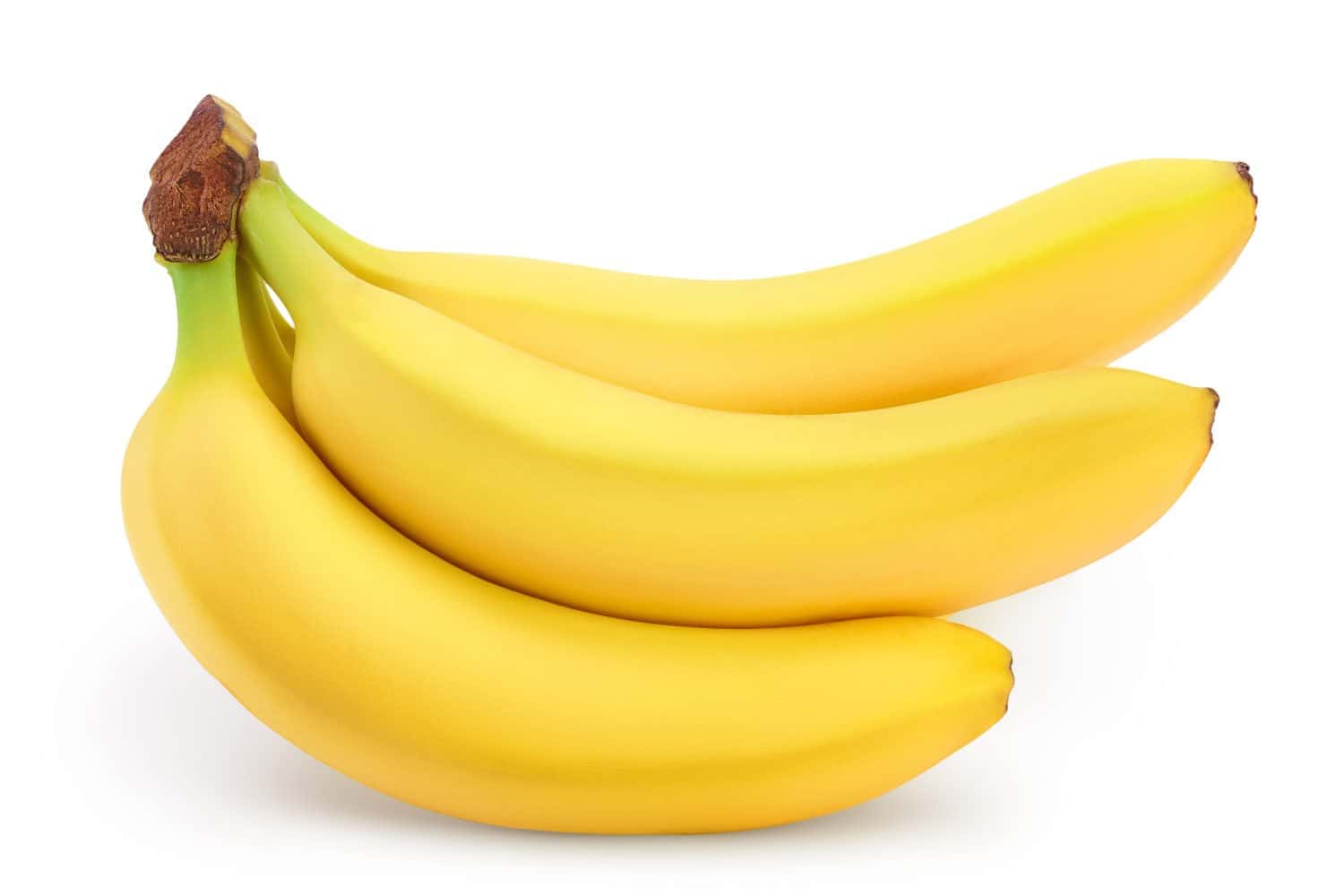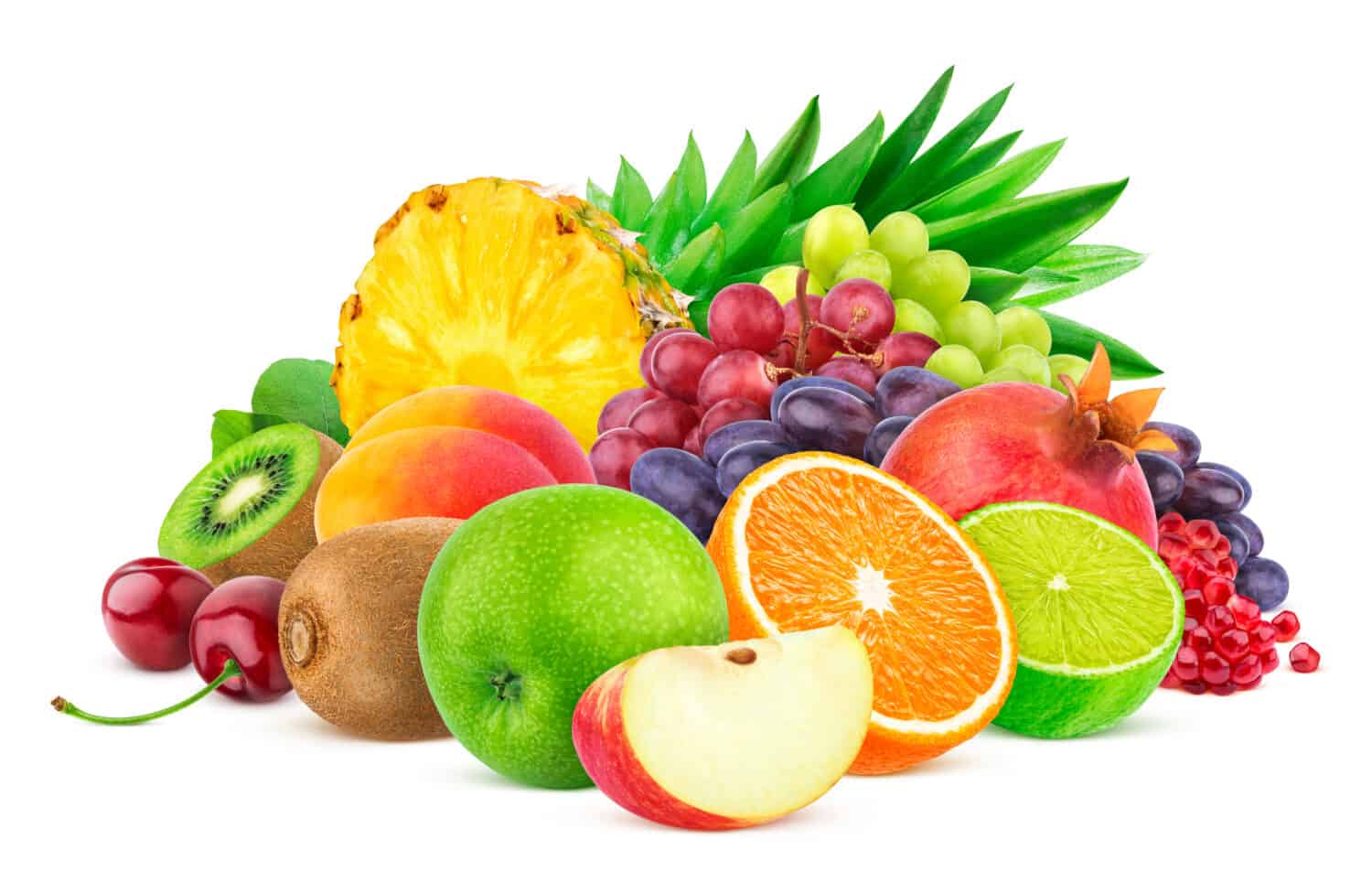Fruits are perfect in salads, on top of cakes, or even as snacks. Yet, if you ask anyone, one of the most frustrating aspects of buying fresh fruit is the rate at which they spoil. While it is true that some fruit may go bad quicker than others, often, the spoilage may be due to inadequate storage methods. Do you find yourself with an abundance of fruit, wondering how to keep these delicious treats from going bad before you and your family can gobble them up? It may be time to remind yourself how to store your fresh fruit so that it lasts for days.
If you are looking for great tips on how to store fresh fruit, look no further. Moms Who Think read through tips and tricks from top experts like Martha Stewart and All Recipes to give you the best recommendations. So, the next time you find yourself with a mountain of berries your children swore they would eat (and then didn’t), do not fret! Try one of these methods first to keep your fresh fruit lasting longer.
Blueberries and Blackberries

©iStock.com/robynmac
Blueberries and blackberries are a great quick snack for kids and adults alike. To help your blueberries and blackberries last longer:
Remember to keep them in a cool, dry place.
Avoid pre-washing your berries, as extra moisture can speed up spoiling. When you first bring your berries home, go through them and throw out any of the already bad ones.
Then place them in a breathable container with a paper towel underneath each layer. The paper towel is there to catch the moisture. This is because moisture is harmful to berries, as it speeds up spoiling.
Another way to keep blueberries and blackberries from spoiling sooner is to freeze them. Place the berries on a baking sheet in a single layer and freeze them overnight. When frozen, transfer the fruit to a freezer bag and squeeze the air out before placing it back in the freezer.
Strawberries

©Tim UR/Shutterstock.com
Strawberries are one of those fruits that go with so many different dishes. You can toss them in a salad or eat them plain. They also make a great snack for toddlers, one reason many parents like to have them on hand. To keep those fresh strawberries in tip-top shape, the best action is to think dry, cold, and whole.
When you bring your strawberries home, sort them before sticking them in the refrigerator. Take a quick peek and throw out any that may be already becoming too squishy, mushy, or moldy. As they say, one bad fruit can spoil the whole lot.
After sorting, be sure that your strawberries are completely dry. You can keep them in the store-bought container or transfer them to a specific produce container. Additionally, some people choose to place strawberries in an airtight container in a single layer on a paper towel. Doing so may help keep moisture at bay.
Do not wash your strawberries until you are ready to eat them; only wash the ones you are about to eat. Remember, moisture is the biggest culprit of quick spoilage. So, keep the ones you aren’t ready to eat dry, whole, and in the refrigerator.
Apples

©iStock.com/Rutchapong
Apples thrive in high relative humidity and cold conditions, between 30 and 32 degrees Fahrenheit. Therefore, the longer you want to keep your apples, the cooler they should be.
According to Martha Stewart, keeping your apples on the countertop is a good option for short-term storage as long as they stay out of direct sunlight. Apples can last up to two weeks there but be sure to keep away from other fruits because the ethylene gas they produce can ripen other fruits quickly.
However, if you plan on keeping your apples for longer than two weeks, use your refrigerator’s crisper drawer. Keeping them cooler helps slow the release of ethylene gas (which ripens them.) In the fridge, apples can last up to four to six weeks.
Melons

©Natalia Sem/Shutterstock.com
If you have a melon, you are anxiously waiting to ripen; a few tips can help keep it fresh for longer. For starters, keep the melon at room temperature until it softens. However, how to store different melons depends on what type they are. Here’s a quick rundown:
Cantaloupe: Keep cantaloupe cool, between 36 degrees and 40 degrees Fahrenheit. The fridge works excellent for both whole and cut-up cantaloupe. Store the cut-up cubes in an airtight container topped with lemon juice to keep them fresh. The crisper drawer works great but keep the cantaloupe away from other fruit. Plastic wrap over the surface is a good option if your cantaloupe is cut in halves with the seeds intact.
Honeydew Melons: Can last up to four weeks between 45 and 50 degrees Fahrenheit or in the fridge. Store in an airtight container.
Watermelon: Cold temperatures spoil watermelon faster — this fruit thrives between 50 and 59 degrees Fahrenheit. Therefore, one of the best places to store watermelon is in a cooler with ice packs and a dry clean towel over the ice pack. Place the cubed watermelon in an airtight container or wrap it tightly with clear plastic wrap. If you choose this option, wrap each wedge individually to keep air exposure at bay. Of course, if you cannot use a cooler, the fridge will still work, although the watermelon may spoil sooner.
Some people also choose to freeze their watermelon or brush it with lemon juice, which has been known to extend its shelf life.
Grapes

©GooDween123/iStock via Getty Images
Much like berries, extra moisture is the enemy of grapes. Therefore, store your grapes in the refrigerator right after picking out the bad ones. Also, avoid washing them until right before you eat them. Instead, keep them whole, dry, and in a breathable container. They do well in the crisper drawer in a breathable container for up to two weeks. You can also keep grapes in the same bag they came home in from the grocery store.
You can freeze grapes to help them last longer. First, wash them and remove the stems. Once the grapes are completely dry (you can speed up the process by patting them), put them in a single layer on a baking sheet. Place the baking sheet in the freezer until frozen. Then, put the frozen grapes into an airtight freezer bag.
Cherries

©iStock.com/dionisvero
While fresh cherries can last on the counter for a few days, many people want to extend their shelf life. Remove rotten cherries immediately. Then make sure the cherries are completely dry and place in a bowl.
Keep the cherries’ stems on, and place the bowl in the refrigerator to extend their shelf life. Also, keep the bowl uncovered to stop moisture from becoming trapped (cherries spoil quicker with moisture).
Bananas

©Nataly Studio/Shutterstock.com
When bananas are picked, their ethylene gases go into overtime, making those yummy treats ripen. Yet, if you still need to keep your bananas from becoming too ripe too quickly, you can try a few tricks. First, purchase green bananas from the store. This will buy you some time. Also, hanging the bananas up will slow the release of ethylene gases.
Have you ever walked through the store and wondered why some of the bananas have stems wrapped in plastic? Turns out there’s a method to this madness. Plastic wrap (or aluminum foil) also aids in slowing down the gases being released, thus slowing down the ripening.
If you still aren’t happy with how fast your bananas ripen, try freezing them by peeling and placing whole or sliced bananas in airtight bags, or place the completely ripened banana in the fridge for a few days.
Oranges

©Photoongraphy/Shutterstock.com
Oranges can last up to a week if stored at room temperature. However, storing them in the refrigerator will keep them fresh longer. Do not wash the oranges until you are ready to eat them. Instead, place them inside a Ziplock bag or an airtight container. Next, put the bag or container in the crisper drawer away from other fruit.
If you do go ahead and cut your oranges, keep in mind that their shelf life will be shorter than that of a whole orange. However, you can store the cut oranges by wrapping the wedges or slices in plastic wrap, placing them in an airtight container, and storing them in the crisper drawer.
Another option is to freeze the oranges by peeling them, cutting them into slices, and placing them on a baking sheet in a single layer. Once frozen, place the orange slices into a freezer bag and store them in the freezer.
Peaches

©Tim UR/Shutterstock.com
Unripe peaches should be placed on the countertop at room temperature with the stem side down. (This method helps prevent bad spots from forming.)
Ripe peaches can be stored in the refrigerator in a loosely sealed bag in the crisper drawer.
To keep sliced peaches fresh, put a thin layer of lemon juice over the top, tightly wrap, and store in the fridge.
Of course, like the rest of the fruit on this list, peaches can also be frozen to help them last longer.
Pears

©KatyaPulina/Shutterstock.com
Like peaches, pears ripen while at room temperature. So, while you wait for your pears to ripen, keep them on a flat surface. If the pears are bunched or kept in a bag, they will ripen quicker due to the ethylene gases.
Typically, pears last in the fridge for three to five days. Try placing them in a paper bag in the crisper drawer to extend their shelf life. Be sure to remove any mushy pears right away, as they can rot quickly.
Pears can also be frozen like peaches and last up to one year.
Pineapple

©baibaz/Shutterstock.com
Pineapples will not ripen on their own after being picked. This is because they need the starch intake to continue to ripen. However, pineapples can become softer with a few methods. If you have found that the pineapple you brought home from the store is not as ripe as you would prefer, place it in a brown paper bag. This method will help soften the pineapple.
Storing your pineapple on the counter is okay if you plan to eat it immediately. At room temperature, this fruit lasts about three days. However, storing the uncut pineapple in the fridge will extend its shelf life. Try storing it in the warmest part of the fridge.
If you want the pineapple to last even longer, cut it up and store it in an airtight container in the fridge.
Pineapple can also be frozen.
Kiwi

©Oksana Mizina/Shutterstock.com
Ripe kiwis will be soft and give a little bit. Unripe kiwis will be hard to the touch. In this case, they are best stored at room temperature, away from direct sunlight.
When completely ripe, kiwis can be stored in the fridge, but keep them away from other fruit. Another way to ensure freshness is to cut them into slices and store them in a plastic bag or airtight container.
In Conclusion

©iStock.com/Fresh mixed fruits background.Organic fruits multicolore background.
Although fruit often seems to go bad quickly, sometimes it’s because the storage methods are all wrong. Knowing how to store your fresh fruit will come in handy. Remember that fruits emitting ethylene gases can cause other fruits to ripen and spoil much quicker. Therefore, it’s best to keep those fruits separate from others.
Additionally, while the countertop is an excellent place for unripe fruit to ripen, the fridge is the best place to store many fruits, especially oranges and pineapples, to keep them fresh longer.
Remember, many fruits can also be frozen! So, if you have excess fruit and cannot devour it, try flash-freezing it and storing it for later. Before you know it, your fruit will last for weeks.
The image featured at the top of this post is ©Spalnic/Shutterstock.com.
